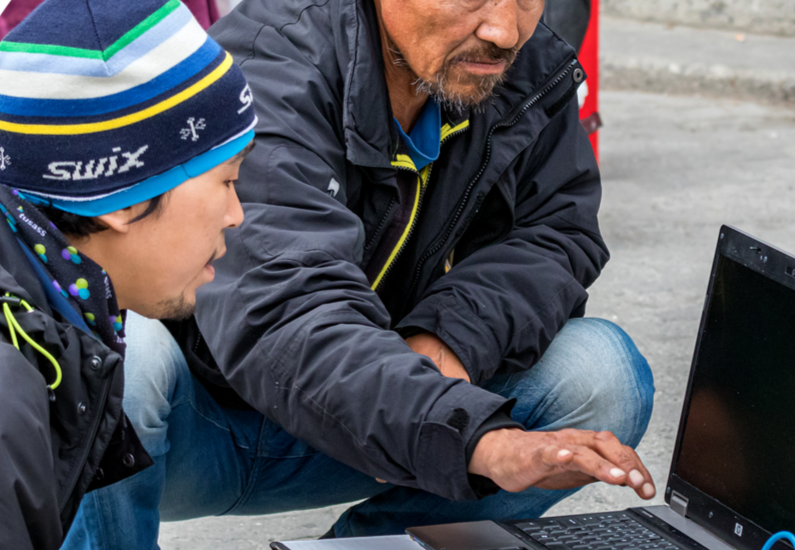Where We STEM
Where a person is from informs what and how a person learns. While many of us claim to be from locations defined by colonial settlers, the land we reside on is home to—and will always be home to—Indigenous peoples. It is important to raise awareness of the Indigenous presences and land rights issues that surround us. After all, we are carrying out our lessons, projects, and research on their land.
Introduction to Land Acknowledgements
Land acknowledgements are an important step in promoting decolonization: recognizing the history and legacy of colonialism. Understanding the privilege you hold by occupying Indigenous land will help inform the way you include others in your projects, as well as the outcomes of your work.
To learn more about where you STEM, use the map tool on the right to find whose Native Land you operate on. In your next class, meeting, or event, consider sharing this information through a land acknowledgement. While some tribal nations may already have land acknowledgement statements on their websites, research can help you construct your own statement alongside the appropriate tribal nations.
How to Get Started
While there is not a one-size-fits-all solution for land acknowledgements, read these resource packs to get started. Remember that starting somewhere is better than not trying at all.
Why Honor the Land?
"They can be transformative acts that to some extent undo Indigenous erasure."
—Chelsea Vowel (Métis), âpihtawikosisân
Land acknowledgements demonstrate an understanding of Indigenous peoples' practices, as well as lay the groundwork for positive change. While it may cause some unpleasant feelings of guilt and shame, we must face history in order to create a more equitable future.
Why Specifically in STEM?
STEM research and education have a long history of excluding and harming Indigenous peoples. As members of the STEM community, we have a responsibility to recognize these truths and to uplift Indigenous voices. Learn more about this issue through these articles:
How May Land Acknowledgements Fall Short?
"Until action is taken to identify and empower Indigenous people, accurate history is taught, and land-based justice is carried out, a land acknowledgement statement feels mostly empty and alienating."
—Summer Wilkie (Cherokee), Cherokee Pheonix
"As we are already seeing, territorial acknowledgments can become stripped of their disruptive power through repetition. The purpose cannot merely be to inform an ignorant public that Indigenous peoples exist, and that Canada has a history of colonialism...Stopping at territorial acknowledgments is unacceptable."
—Chelsea Vowel (Métis), âpihtawikosisân
"It's one thing to say, 'Hey, we're on the territory of the Mississaugas or the Anishinaabek and the Haudenosaunee.' It's another thing to say, 'We're on the territory of the Anishinaabek and the Haudenosaunee and here's what that compels me to do.'"
—Hayden King (Anishinaabe), CBC Radio
Land acknowledgements cannot be the only action you take to reduce and remove colonial influences from STEM subjects. Learn more about what steps you can take in the featured resources section, as well as in our Resource Library.






